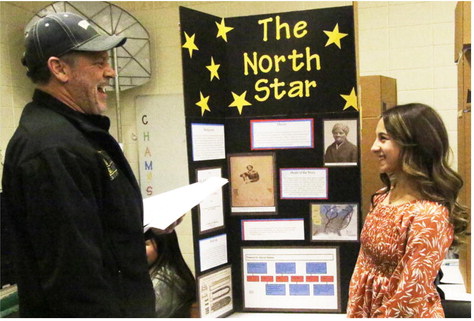Indian Caucus Reflects On 68th Session
The 68th session of the Montana Legislature came to an end on its 87th day. For the Legislature’s American Indian Caucus, composed of 11 Indigenous representatives and senators, the session saw some priority bills ushered into law and others complicated with disputed amendments. Still others died early in the session.
Rep. Jonathan Windy Boy, D-Box Elder, a veteran lawmaker participating in his 11th legislative session this year, introduced nine bills, including one designed to protect the integrity of Indigenous families and another to revise Indian education laws.
Windy Boy’s House Bill 317, titled “Establishing the Montana Indian Child Welfare Act,” was a top American Indian Caucus priority for the session. Windy Boy said during multiple committee hearings and floor debates that the bill’s motivation lay in a pending U.S Supreme Court case that could upend the federal Indian Child Welfare Act of 1978.
While the bill passed the Legislature and awaits Gov. Greg Gianforte’s consideration, it traversed a winding path studded with disputed amendments to get there.
“For too long, a lot of our kids have been lost in one system or another, whether it be this system or through residential schools,” Windy Boy told lawmakers in a committee hearing earlier this session. “It’s time to wake up and kind of move forward.”
Along with MICWA, Windy Boy also called for accountability for the use of state funds to implement Montana’s constitutionally mandated Indian Education for All curricula with House Bill 338. The bill would require a stricter reporting system for Indian Education For All expenditures curricula. The bill is currently awaiting Gianforte’s consideration.
One big win in the caucus members’ eyes is the passage of Senate Bill 120, which establishes a memorial highway in memory of the late Blackfeet Chief Earl Old Person. Sponsor Sen. Susan Webber, D-Browning, anticipated the bill would be passed quickly, but was surprised to see it tabled by its first committee.
“It was a struggle getting it out and, and it shouldn’t have been,” Webber said in a March interview. “It should have been a slam dunk. It should have been easy, and I thought when I started it out, ‘Oh, it’s just going to sail through.’ That wasn’t the case.”
One bill impacting Native communities that didn’t originate with the caucus is House Bill 479, sponsored by Rep. Joe Read, R-Ronan. The bill asks the state to reimburse Lake County for its law enforcement efforts on the Flathead Indian Reservation — a responsibility implemented by Public Law 280, an agreement the tribe signed up for in 1963. Lake County has said it will withdraw law enforcement services from the reservation portion of the county if the state doesn’t provide reimbursement.
Several Confederated Salish and Kootenai tribal members came to the Capitol and spoke against the bill. CSKT tribal leadership has yet to publicly take a position. The bill currently awaits the governor’s attention. Rep. Tyson Running Wolf, D-Browning, introduced several bills to address the issue of missing persons within the state. House Bill 18, which creates and funds a training program for a missing persons response team, followed a relatively smooth path through the Legislature and was signed into law by Gianforte on April 19. House Bill 163, which extends the state’s Missing Indigenous Persons Task Force, is awaiting the governor’s signature or veto.
Senate Bill 141 would have changed the state’s Columbus Day holiday to Indigenous Peoples’ Day, a proposal that’s made multiple appearances in previous legislative sessions. Sen. Shane Morigeau, D-Missoula, introduced the bill, which was tabled in committee and failed in a blast motion on the Senate floor.
On the education front, Windy Boy introduced House Bill 288, which would have revised the eligibility requirements for the state’s American Indian Tuition Waiver. The bill’s original intent was to open the waiver to any Montana resident who can prove tribal descendancy from any of 574 federally recognized tribes. The bill eventually failed on the Senate floor with a 25-25 vote.
While celebrating a handful of significant victories, several caucus lawmakers said more could have been done to address childcare, the state’s housing crisis and educational access.
Some also noted their disappointment with legislative dynamics in a session defined by a historic Republican supermajority.
“It was very very frustrating, contentious, and it was just mean,” Webber said of the session. “I’ve been in five sessions, this has got to be the worst session in terms of personalities, in terms of getting things done, and in terms of just how the supermajority manipulated everything. They didn’t even need us basically.”
Morigeau, who finished his fourth session, said there is a need to continue to fight for everyday Montnans in the next Legislature.
“I just feel like we’re going to continue to try and close the gaps on a lot of these statistics that we see, whether it’s in the justice system, the health care system for Native populations, and Montanans in general,” Morigeau said in an interview with MTFP and ICT. “At the end of the day, I think we’re trying to just look out for working people, and that’s what we’re gonna come back and do is try to make sure there’s equity in our governmental systems for the working-class Montanans.”


